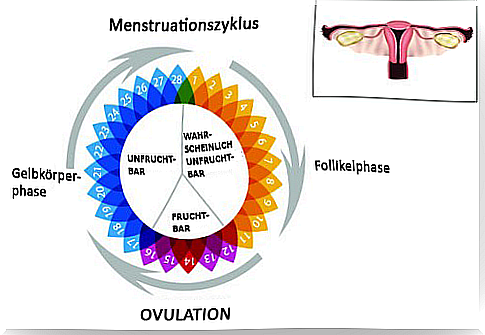Irregular Menstruation – Why?
The absence of menstruation is called amenorrhea. Mostly stress or malnutrition are responsible for this.

Irregular menstruation is quite normal for many women . Arrhythmias can often occur due to stress or other causes.
The causes of irregular menstruation can be very different. Our diet and health are undoubtedly crucial for a regular period, so today we would like to inform you about this topic in more detail.
This makes it easier to understand the symptoms and work with your doctor to find solutions. Don’t forget that if you have any symptoms or body changes, you should see a specialist doctor for proper diagnosis and treatment.
What is irregular menstruation?
You have probably had irregular menstruation several times and wondered what was going on. Your period is not coming, you know you are not pregnant, but the days go by without the monthly bleeding.
It can of course also happen that the bleeding comes unexpectedly or that it is stronger or weaker than normal.
A normal menstrual cycle lasts between 21 and 35 days before your period starts. It is normal for irregularities to occur for the first five or six years, but the cycle slowly levels off over the years.
The first signs of menopause usually appear between the ages of 40 and 45.
Irregular menstruation refers to all abnormal cycles that either cause more pain, come too early or too late, are stronger or weaker, do not appear or appear twice a month … we will list possible causes below.
Late menstruation
In this case, the first thing we need to do is make sure we are not pregnant. If pregnancy can be ruled out, it is called amen or rhoe or amenorrhea if there is no menstrual bleeding for three months.
Mostly it is caused by nervousness, periods of stress and emotional problems (e.g. a death in the family) … it is normal for our bodies to suffer from these situations.
Sometimes a poor diet is also to blame for missed periods, for example with anorexia, certain medications or obesity. Thyroid problems or other hormone-related complaints can also cause amenorrhea.
What can I do?
After the doctor’s visit you can, if you want, in addition to the prescribed treatment, observe the following simple and healthy tips to regulate your organism:
- Better nutrition: Avoid fatty and sweet foods as much as possible. Drink a lot and eat a lot of fruits and vegetables.
- Papayas do an excellent job of normalizing the menstrual cycle.
- Fennel tea: is ideal for regulating the monthly cycles. It is best to drink two smaller cups a day for two weeks and you will find that the cycle slowly levels off.
Oligomenorrhea
Oligomenorrhea is used when the overall cycle is lengthened, for example if the period only occurs once in four months or just now and then without regularity.
This may be normal for some women, but often this cycle elongation is caused by polycystic ovaries.
Vorzei ti ge ovarian failure
Sometimes menstrual periods stop before the age of 45 because ovulation no longer occurs. With these symptoms, periods may be absent or only occasional because of premature ovarian insufficiency.
Possible consequences can be osteoporosis, therefore, in this case, additional hormonal therapies are usually prescribed.
D ysm enorr ho e
This is very painful bleeding. The women concerned suffer from great pain, especially during menstruation, and feel unable to carry out their daily obligations.
Even if it is not a serious illness, it has a great impact on daily life. Home remedies are warm baths or natural plants with an analgesic effect.
Endometriosis
If you experience pre- and post-menstrual pain and long, heavy bleeding, it may be caused by endometriosis.
This is an abnormal tissue disorder inside the uterus that can also result in infertility. Endometriosis is a serious disease that definitely needs medical attention.
Uterine fibroid
Uterine fibroids are benign tumors that often appear in the fertile age. The signs of fibroids can be very different: heavy menstrual bleeding, intermenstrual bleeding …
Sometimes medication can prevent the fibroids from growing, otherwise surgery is necessary to remove them.
If you are menstruating irregularly, you should monitor all signs in the body. Stress, poor nutrition or other illnesses that require medical treatment can often be the trigger for irregularities. Pay attention to any changes in the body.









